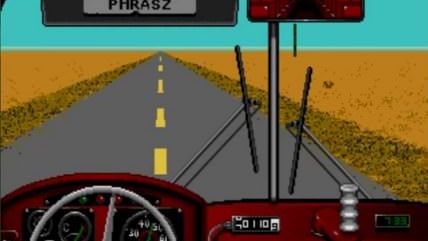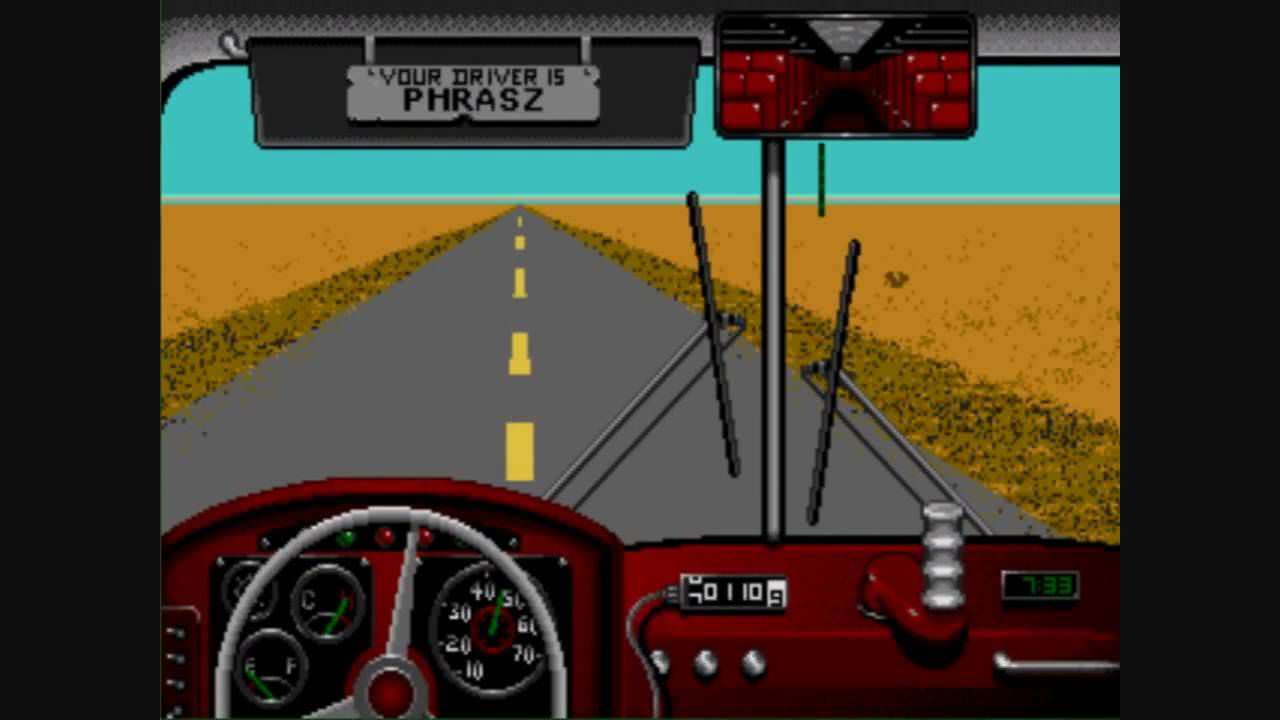Video Games for Good Causes
Philanthropy is just a joystick away


Desert Bus was never intended to be anything more than a joke. It was an inconsequential side-game that was part of Penn & Teller's Smoke and Mirrors, a video game made in 1995 for several different consoles, but never released after the developer went out of business.
In Desert Bus, players drive a bus at a maximum speed of 45 miles per hour from Tucson, Ariz., to Las Vegas in actual, real time down a straight, featureless highway. That's it. That's the game. The trip takes eight hours. The game cannot be paused and the bus's alignment is just a touch off, so the player must sit there and keep the bus straight or it will run off the road.
In a 2006 interview, Penn Jillette explained that the purpose of the game was to respond to critics of video game violence (Janet Reno in particular) who perpetuated the scientifically unsubstantiated moral panic that violent games create violent teens who cause violence in the real world. Desert Bus was boring and awful on purpose. Nobody was supposed to enjoy playing it.
But a year after Jillette's explanation of the game, a video game comedy group called LoadingReadyRun got their hands on Desert Bus and came up with an idea—why not use the horribleness of the game to raise money for charity? In 2007 they began Desert Bus for Hope. Participants drove the bus back and forth from Tucson to Las Vegas for donations. The more donations they received, the longer they'd drive the bus.
For the first year, they reported $22,805 in donations. Their haul has increased every year since then. Last year they took in nearly $450,000. The donations go to Child's Play, a charity within the video game industry devoted to raising money and donating toys and games to sick kids in children's hospitals. Founded in 2003 by the creators of the famous online video-gamed-themed comic strip Penny Arcade, Child's Play now raises millions each year.
The Desert Bus fired up its engine again this past weekend. As of this morning they've raised more than $173,000.
Desert Bus for Charity and Child's Play aren't the only folks using video games to raise money for philanthropic purposes. At the end of October, Twitch, an online service that hosts gamers who livestream their play so people on the Internet can watch, declared that its community had raised more than $8 million for various charities. Twitch launched all of two years ago.
The glory days of the televised Jerry Lewis Telethon may be over (and the Muscular Dystrophy Association appears to be raising money just fine even with the reduction in televised programming), but cultural shifts bring around new philanthropic possibilities. Gen Xers and Millennials may not feel particularly attached to lounge crooners or prone to using their phones to actually call an 800 number to pledge a donation, but replace Dean Martin and friendly operators with Link from The Legend of Zelda and Internet crowdfunding tools and watch charity 2.0 (or whatever appropriate next-gen buzzwords apply) happen.
There's even a video game version of those familiar walkathons where folks get their neighbors to sponsor them a few bucks for charity in exchange for them traveling a few miles with their fellows on a given day (think of the various AIDS walks and the American Cancer Society's Relay for Life). On Nov. 2, gamers were invited to hold their own 25-hour gaming marathons to raise money for Children's Miracle Network hospitals. Organized through a program called Extra Life, many of these gamers streamed their activities through Twitch. Extra Life has reported raising $3.8 million so far in 2013.
Watching somebody else play games may not be entirely entertaining (especially Desert Bus), but there are often side auctions and prizes as well, so donors aren't just walking away empty-handed. There's even a bit of an education for the more intense or hard-core gamers.
Speed Demos Archive is made up of a group of players who like to beat video games as quickly as possible. They work at it, too, like craftsmen, playing their games over and over again, fighting to shave off valuable minutes and seconds here and there to set a new speed record. They started running charity marathons in 2011. Their two marathons in 2013 raised more than $400,000 for the Prevent Cancer Foundation and $250,000 for Doctors Without Borders. Watching their live stream is a great way to discover that the Nintendo game that tormented you as a child with its ridiculous difficulty curve can actually be beaten in just 20 minutes.
The MDA's telethon may have tossed aside Jerry Lewis and may no longer dominate the airwaves on Labor Day the way it used to, but charity continues to follow culture's recreational interests. Video game philanthropy is particularly worth noting by those who worry that today's young are so used to living in a world managed by a big government bureaucracy that handles everything. The bungled Affordable Care Act launch may have educated some about the dangers of expecting the government to manage our health programs, but millions of younger adults out there already know that there are other ways to provide for the needs of the sickest among us.
Editor's Note: As of February 29, 2024, commenting privileges on reason.com posts are limited to Reason Plus subscribers. Past commenters are grandfathered in for a temporary period. Subscribe here to preserve your ability to comment. Your Reason Plus subscription also gives you an ad-free version of reason.com, along with full access to the digital edition and archives of Reason magazine. We request that comments be civil and on-topic. We do not moderate or assume any responsibility for comments, which are owned by the readers who post them. Comments do not represent the views of reason.com or Reason Foundation. We reserve the right to delete any comment and ban commenters for any reason at any time. Comments may only be edited within 5 minutes of posting. Report abuses.
Please to post comments


Absolutely nothing wrong with games. I like this story.
Points for not using any form of the word "Hacktivism".
Can't wait to get back into PC gaming... wanna try that hip new RTS all the young people are playing called Anno 2070.
Can't wait to get back into PC gaming..
My plan is to play the crap out of Elite Dangerous and Star Citizen....
Hopefully with an Oculas Rift.
After years of looking at the point and click crap that is called EvE Online and pining for a real time space trading shooter it looks like i will be getting more then one in 2014.
Child's play does amazing work. It is wonderful to see bed ridden children laughing and getting excited gaming.
Google is paying 75$/hour! Just work for few hours & spend more time with friends and family. On sunday I bought themselves a Alfa Romeo from having made $5637 this month. its the best-job Ive ever had.It sounds unbelievable but you wont forgive yourself if you don't check it out http://www.Buzz95.com
Speaking of Penny Arcade...
Then there's the charity issue. My God, do Americans ever do it. Seriously, the local children's hospitals where I live have said No more toys, please! They've got so many dolls, books, games, scooters, teddy bears, and whatnot that they can't take any more.
Speed Demos Archives are really entertaining at their marathons - always fun to see Twitch chat go crazy when a run is going well
Please treat this as a question of motivation and not a flame, but in response to "Then there's the charity issue. My God, do Americans ever do it." IF the tax code was rewritten to be purely sales tax and no write-offs for charity, would Americans still donate as much charity each year? If less, how much less charity would they donate?
I love this game. It's good.
my buddy's sister-in-law makes $89/hr on the laptop. She has been unemployed for seven months but last month her paycheck was $13360 just working on the laptop for a few hours. visit the website
===========================
http://www.FB49.com
===========================
Go to website and click Home tab for more details.
We have all got the way to get the choices hack online when we want to get the free diamonds and keys that we want to get here,
this is good too
https://www.al3abbnat.net/